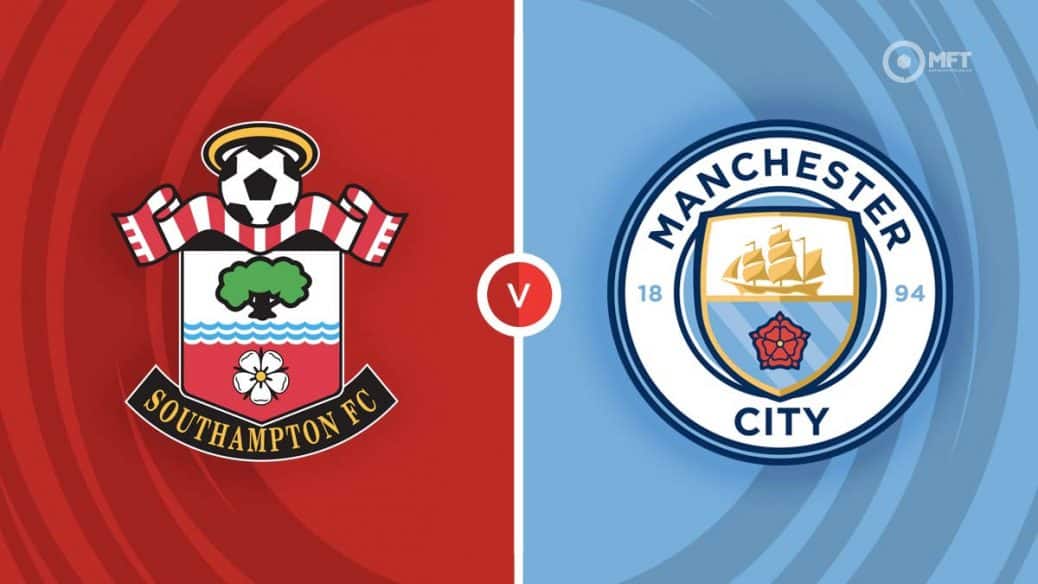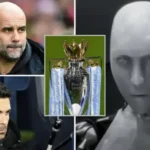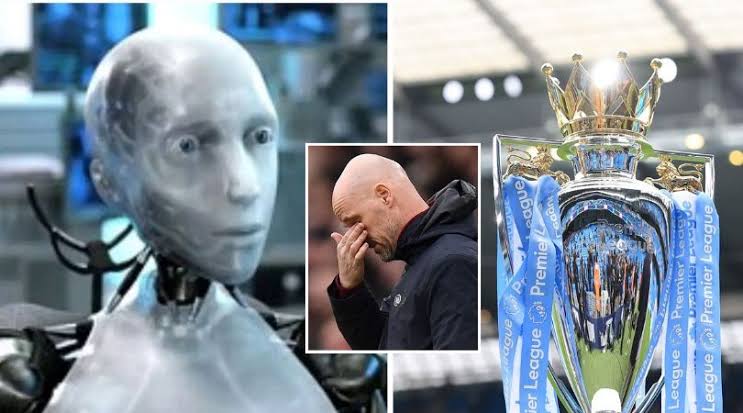Disgrace’ – Southampton should be ashamed over ’embarrassing’ social media post

In the high-pressure world of Premier League football, relegation represents the ultimate failure for any club. For Southampton FC, their 2024-25 campaign has been nothing short of disastrous, culminating in their inevitable return to the Championship after just one season in England’s top flight. However, it wasn’t their poor performances alone that have drawn criticism in recent days, but rather their social media activity following an unexpected result against Manchester City.
On Saturday, May 10, Southampton managed to hold the title-contending Manchester City to a scoreless draw at St. Mary’s Stadium. While the result itself was surprising given the dramatic quality difference between the two sides, what followed on social media ignited significant controversy throughout the football community.
Southampton’s official X (formerly Twitter) account tagged Derby County’s official account in a post reading: “Sorry if we got your hopes up.” The post referenced Southampton’s achievement of reaching 12 points for the season, narrowly avoiding Derby County’s infamous record of the lowest points total in Premier League history (11 points in the 2007-08 season).
This digital jab at Derby County’s expense immediately drew fierce criticism from football pundits, former players, and fans alike. What should have been perhaps a moment of minor relief in an otherwise catastrophic season instead became emblematic of what many view as misplaced priorities and unprofessional conduct from the club’s communication team.
“A Disgrace”: Pundit Reactions to Southampton’s Post
Jamie O’Hara, the former Tottenham and Wolverhampton midfielder now working as a pundit for talkSPORT, was particularly scathing in his assessment of Southampton’s social media activity. During a live broadcast on the station’s GameDay Phone-In program, O’Hara, who had a loan spell at Southampton’s bitter rivals Portsmouth, didn’t mince his words:
“They should be ashamed of themselves. Someone get hold of them and give them a wobble,” O’Hara declared with evident frustration. “The game’s gone, Jase [Cundy], the game is gone, that Southampton are celebrating this—12 points!”
His co-host Jason Cundy, a former Chelsea player, echoed these sentiments: “I’m not going to defend that by the way, that is shameful. Anyone that’s in charge of social media at a professional football club, they need to consider what they’re tweeting. That is embarrassing. I would stay quiet.”
The criticism wasn’t limited to the social media post alone. O’Hara expanded his critique to include the players’ post-match behavior: “I am embarrassed at the way that they’re acting after that game. They’re fist-pumping the crowd, they’re walking around like they’ve won the Premier League, like they’ve just won a semi-final to get to Wembley. They’ve got 12 points, 12! Get off the pitch, get yourselves home, you’ve embarrassed yourselves all season, you’re walking around the pitch clapping the fans.”
These reactions highlight a fundamental question about sporting culture: When is celebration appropriate, and when does it become inappropriate or even disrespectful to the game itself?
The Context: Southampton’s Season of Despair
To fully understand the controversy, one must examine Southampton’s dismal 2024-25 campaign in its entirety. Having earned promotion back to the Premier League via the Championship play-offs last season, defeating Leeds United in the final at Wembley, expectations were cautiously optimistic at St. Mary’s.
However, the Saints’ return to the top flight quickly turned sour. Under the stewardship of Russell Martin, who had masterminded their promotion campaign, Southampton managed just one league win in their first 16 matches. This dreadful start prompted the board to take action, dismissing Martin in December 2024—a harsh reality of the Premier League’s unforgiving nature.
Croatian coach Ivan Juric was appointed as Martin’s permanent replacement, tasked with the increasingly impossible mission of preserving Southampton’s Premier League status. Despite some brief improvements in performances, results continued to evade the Saints, and their relegation was mathematically confirmed in April 2025. Juric was subsequently relieved of his duties, with the club turning to Simon Rusk as interim manager to guide them through the final fixtures of a lost season.
As of the controversial Manchester City fixture, Southampton’s record stands at:
- Played: 36
- Won: 2
- Drawn: 6
- Lost: 28
- Points: 12
This represents one of the worst campaigns in Premier League history, second only to Derby County’s infamous “11-point season.” With two games remaining—against Everton and Arsenal—Southampton’s final points tally will likely remain historically poor regardless of their results.
The Derby County Comparison: Historical Context
The reference to Derby County in Southampton’s social media post wasn’t arbitrary. The 2007-08 Derby County team has long held the unwanted record for the worst Premier League season in history. Under manager Billy Davies, and later Paul Jewell, the Rams managed just one win and eight draws across their 38-game campaign, accumulating a mere 11 points.
Derby’s goal difference of -69 (they scored just 20 goals while conceding 89) further cemented their place in the record books as the Premier League’s least successful team. Their relegation was confirmed in March 2008, the earliest a team had ever been mathematically relegated from the Premier League at that time.
This historical context makes Southampton’s social media post all the more controversial. While avoiding Derby’s record might technically be considered an achievement of sorts, many feel that celebrating such a minor distinction while still enduring a catastrophic season shows a fundamental disconnect from sporting values.
The Manchester City Draw: Context and Reaction
The immediate backdrop to the controversial social media post was Southampton’s unexpected 0-0 draw with Manchester City. For context, City arrived at St. Mary’s as overwhelming favorites, still locked in an intense title race with Arsenal at the top of the Premier League table.
For Southampton to hold Pep Guardiola’s star-studded team scoreless represented their best performance in months. However, the manner in which they achieved this result also drew criticism, particularly from City’s players.
Manchester City defender Ruben Dias didn’t hide his frustration in post-match interviews: “It’s obviously frustrating to play against a team like this. They don’t even try anything, they just sit and they don’t even want to win the game. They just want to be there, and it’s not good for the show, it’s not good for themselves, it’s not good for anyone.”
Dias’s comments highlighted a philosophical debate that often emerges when relegation-threatened teams face title contenders: Is extreme defensive football, with little attempt to win the game, a legitimate tactical approach or a betrayal of the game’s competitive spirit?
From Southampton’s perspective, securing a point against Manchester City represented a small victory in a season devoid of highlights. Yet their celebrations, both on the pitch and on social media, struck many observers as disproportionate given their overall season performance.
The Ethics of Social Media in Professional Sport
Southampton’s controversial post raises important questions about the role and responsibilities of official club social media accounts in the modern sporting landscape. With millions of followers across platforms, Premier League clubs wield significant influence in the digital space. Their communications are no longer simply informational but have become part of the club’s identity and brand.
Sports communication experts argue that club social media strategies broadly fall into several categories:
- Informational: Providing updates, team news, and factual content
- Engagement-focused: Creating interactive content to build community
- Brand-building: Establishing and reinforcing the club’s identity
- Commercial: Promoting merchandise, tickets, and sponsors
- Entertainment: Creating humor and enjoyable content for followers
Southampton’s post appears to have been an attempt at category 5—humor through mild antagonism of another club. However, the context of their own performance created a disconnect that many viewed as inappropriate.
Dr. Emma Richardson, a sports communication researcher at the University of Birmingham, notes: “Club social media accounts walk a fine line between engagement and professionalism. When a club is performing poorly, attempts at humor can be perceived as tone-deaf or disrespectful to their own supporters who have endured a difficult season.”
This perspective raises questions about the approval processes for social media content at professional clubs. While many teams employ dedicated social media managers, controversial posts suggest potential gaps in oversight when it comes to assessing how content might be perceived in the wider football community.
Fan Reactions: Divided Opinions
As with most sporting controversies, fan reactions to Southampton’s post were notably divided. A survey of social media responses reveals three distinct camps:
Southampton supporters were generally split. Some appreciated the moment of levity in an otherwise miserable season and defended the club’s right to find positives where they could. Others felt embarrassed, arguing that the post reflected poorly on the club’s professionalism and drew unnecessary attention to their dire campaign.
One Southampton fan, posting under the username @SaintsFCJames, wrote: “Honestly, I get we’re trying to have a laugh, but maybe read the room? We’ve been absolutely woeful all season. Not sure taunting Derby is the look when we’re going down with a whimper.”
Neutral fans largely sided with critics, viewing the post as an attempt to save face that ultimately highlighted Southampton’s poor season rather than providing genuine humor.
Derby County supporters were understandably the most critical, with many responding directly to Southampton’s post with reminders that Derby’s infamous season occurred 17 years ago, while Southampton’s relegation is current and immediate.
The Broader Issue: Success and Failure in Football
Beyond the immediate controversy, Southampton’s social media misstep touches on deeper questions about how success and failure are measured in modern football.
For historically smaller clubs like Southampton, avoiding relegation often represents success in itself. The financial disparity between the Premier League’s top clubs and those fighting for survival has created a two-tier reality within the same competition. Yet even by the standards of relegation battles, Southampton’s season has fallen well short of competitive.
Former Premier League manager Sam Allardyce, known for his expertise in helping clubs avoid relegation, commented: “When you’re fighting relegation, every point matters. But you have to maintain perspective. Your goal isn’t just to avoid being the worst ever; it’s to stay in the league. Once relegation is confirmed, your focus should shift to rebuilding with dignity.”
This sentiment captures what many feel was missing from Southampton’s social media approach: a sense of proportion and dignity in defeat.
A Season of Managerial Turbulence
Southampton’s disastrous campaign has been marked by managerial instability that has contributed significantly to their poor performances. Russell Martin, appointed in July 2023, had successfully guided the club back to the Premier League through the Championship play-offs. His possession-based philosophy had shown promise in the second tier, but the step up to Premier League quality proved too substantial.
Martin’s dismissal in December 2024 came after a run of just one win in 16 matches, with the team routinely conceding goals at an alarming rate. His replacement, Ivan Juric, attempted to instill greater defensive solidity, but the damage had already been done. With the squad seemingly devoid of confidence and Premier League quality in key positions, Juric couldn’t reverse the club’s fortunes.
Following confirmation of relegation in April 2025, Juric was also dismissed, with academy coach Simon Rusk stepping in as interim manager for the remaining fixtures. This revolving door approach has contributed to a lack of tactical identity and team cohesion throughout the campaign.
Football analyst Michael Cox observed: “Southampton’s season has been a masterclass in how not to approach Premier League survival. From recruitment to tactical approach to managerial decisions, it’s difficult to identify anything they’ve done right. The social media controversy is just the latest symptom of a club that has lost its way.”
The Financial Implications of Relegation
Beyond the sporting failure and social media embarrassment, Southampton now face serious financial consequences as they prepare for life back in the Championship.
Premier League broadcast revenue alone provides clubs with approximately £100 million annually. While parachute payments will cushion the immediate financial blow of relegation—providing approximately £40 million in the first year—Southampton face difficult decisions regarding their playing squad and operational structure.
Several of their more valuable players, including midfield talents James Ward-Prowse and Romeo Lavia, will likely attract interest from Premier League clubs. The Saints will need to balance the need to cash in on assets against maintaining a squad capable of competing for immediate promotion back to the top flight.
Sports economist Dr. Rob Wilson explains: “Beyond the immediate financial hit, relegated clubs face a complex balancing act. Cut too deeply, and you risk becoming a Championship club long-term. Don’t adjust costs enough, and financial problems can quickly escalate. The first summer after relegation is crucial for setting the right course.”
This context makes Southampton’s focus on avoiding Derby’s points record seem even more misplaced. Rather than celebrating a minor statistical victory, the club’s energy might be better directed toward planning for a successful Championship campaign.
Looking Ahead: Rebuilding from the Ruins
As Southampton prepare for their final two Premier League fixtures against Everton and Arsenal before returning to the Championship, attention will soon turn to rebuilding. The club has experienced relegation before, most recently in 2022 before bouncing back via the play-offs, but this season’s particularly poor performance suggests deeper problems that must be addressed.
The first priority will be appointing a permanent manager. With Simon Rusk serving only as an interim, Southampton will need to identify a coach capable of both immediate Championship success and longer-term Premier League sustainability.
Player recruitment will also be crucial. The current squad has proven woefully inadequate at Premier League level, but wholesale changes risk disrupting team chemistry further. Finding the right balance between continuity and necessary improvement will challenge the club’s recruitment team.
Perhaps most importantly, Southampton must rebuild their identity both on and off the pitch. The social media controversy represents just one example of a club that appears to have lost its sense of self during a turbulent campaign.
Lessons in Club Communication
For other clubs watching this controversy unfold, there are valuable lessons in how to manage communications during periods of sporting failure:
- Maintain perspective: Celebrating minor victories while ignoring major failures can appear tone-deaf.
- Respect opponents: Using other clubs’ historical low points as comparison points rarely reflects well, especially when your own performance has been poor.
- Consider timing: What might be acceptable banter during a successful season can appear desperate during failure.
- Remember your audience: While social media often rewards edgy content, clubs must consider how posts reflect on their overall brand and values.
- Take responsibility: Acknowledging failure with dignity often earns more respect than attempting to deflect attention through humor or antagonism.
Southampton’s media team likely intended their Derby County reference as a moment of light relief during a dark season. Instead, it became yet another moment of criticism in a campaign full of disappointments.
Conclusion: More Than Just a Tweet
What began as a seemingly minor social media post has evolved into a wide-ranging discussion about sporting values, club communications, and the nature of success and failure in modern football. Southampton’s attempt to find solace in avoiding Derby County’s record points low has instead highlighted the gulf between acceptable sporting behavior and poor judgment.
As the Saints prepare for life in the Championship, rebuilding their on-field performance will be matched in importance by the need to rebuild their reputation. In the unforgiving world of Premier League football, dignity in defeat is often remembered long after the sting of relegation fades.
For now, Southampton must focus on their remaining fixtures against Everton and Arsenal before the curtain falls on their brief and unsuccessful Premier League return. When they do re-emerge in the Championship next season, they will hope to have learned valuable lessons—both on the pitch and in their communications strategy.
In the words of former England manager Graham Taylor: “In football, how you lose says as much about your character as how you win.” It’s a lesson Southampton would do well to embrace as they look to rebuild from one of their lowest sporting ebbs in recent memory.















